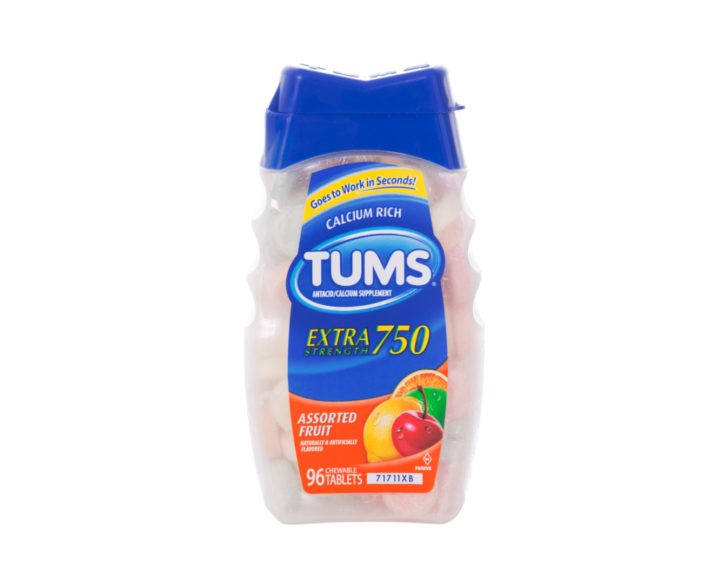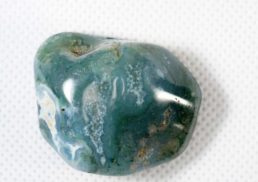Heartburn and indigestion can be both uncomfortable and disruptive. It’s important to find effective relief that works quickly and safely. TUMS antacids, with their active ingredient calcium carbonate, have been a trusted source of relief for millions of people for decades. But what makes the active ingredient in TUMS, calcium carbonate, so effective, and how does it compare to other common antacid ingredients?
In this blog post, we’ll explore the science behind TUMS, the benefits of the active ingredient in TUMS – calcium carbonate, and how it stacks up against other antacid ingredients like aluminum hydroxide, magnesium hydroxide, and sodium bicarbonate. We’ll also discuss how TUMS works to relieve heartburn, precautions and interactions to consider, and the variety of TUMS products available to suit individual preferences and needs.
Table of Contents
Key Takeaways
TUMS antacids contain the active ingredient calcium carbonate, providing fast and reliable relief from heartburn and indigestion.
Compared to other antacid ingredients like aluminum hydroxide or magnesium hydroxide, TUMS is more effective for relieving symptoms.
Consult a doctor before taking TUMS as there may be potential interactions with medications and precautions to consider for pregnant women.
Understanding TUMS and Its Active Ingredient

TUMS is a well-known antacid that contains calcium carbonate as its active ingredient, which helps in relieving heartburn symptoms and acid reflux. The average concentration of calcium carbonate in TUMS tablets ranges from 500 to 1000 milligrams per tablet, providing effective relief from gastroesophageal reflux disease (GERD) and stomach acid. TUMS antacid comes in the form of a chewable tablet and is free from animal by-products and aluminum.
Calcium carbonate is a chemical compound with the formula CaCO3, often found in rocks such as limestone, chalk, and marble. It is a highly effective antacid that neutralizes stomach acid, providing relief from heartburn and reducing the need for prescription drugs.
Some key benefits of calcium carbonate as an antacid include:
It is well-tolerated when taken as directed, making it a safe option for those with stomach ulcers.
It provides fast and long-lasting relief from heartburn symptoms.
It can be taken on an as-needed basis or as a preventive measure before meals.
Overall, calcium carbonate is a reliable and accessible option for heartburn treatment, managing symptoms and promoting digestive health.
Calcium Carbonate: The Key to TUMS’ Effectiveness
The effectiveness of calcium carbonate as an anti-acid stems from its ability to neutralize stomach acid. This action consequently alleviates heartburn and indigestion symptoms, making it a fast and effective relief for such discomforts.
Calcium carbonate exhibits high tolerability when taken as directed, establishing it as a safe and reliable option for those with stomach ulcers or other conditions requiring antacids. Its quick action and high efficacy justify its position as the primary ingredient in TUMS antacids.
Sources and Processing of Calcium Carbonate

Calcium carbonate in TUMS antacids is sourced from pure limestone, ensuring its effectiveness and safety in providing heartburn relief as an alternative to certain prescription drugs. In its natural form, calcium carbonate is found in:
Limestone
Chalk
Marble
Shells from shellfish and snails
To ensure its safety and efficacy, calcium carbonate undergoes processing, which results in a rich source of elemental calcium for heartburn relief. This procedure guarantees consistent relief from TUMS antacids and maintains high-quality standards.
Comparing TUMS with Other Antacid Ingredients
While TUMS relies on calcium carbonate to relieve heartburn and indigestion symptoms, other antacids contain aluminum hydroxide, magnesium hydroxide, or sodium bicarbonate as their active ingredients. Each of these ingredients has its own benefits and drawbacks when it comes to providing relief from heartburn and indigestion. In general, TUMS has been found to be more effective in treating digestive upset compared to antacids containing aluminum hydroxide or magnesium hydroxide.
Comprehending the differences between these acidic ingredients is crucial for making a well-informed decision about the most suitable one for you. Subsequent sections will delve into the pros and cons of aluminum hydroxide, magnesium hydroxide, and sodium bicarbonate in the role of antacid ingredients.
Aluminum Hydroxide
Aluminum hydroxide is an antacid used to relieve heartburn, acid indigestion, and upset stomach by neutralizing hydrochloric acid in the stomach. While it can provide relief from heartburn, there are potential safety concerns with long-term use of aluminum hydroxide. Due to its potential to deplete the body of phosphorus and calcium, leading to weakened bones, some products have discontinued its use.
Despite these concerns, aluminum hydroxide remains a popular choice for heartburn relief and is often used in combination with other antacid ingredients, such as magnesium hydroxide, for a more balanced and effective treatment. However, it’s important to consider the potential risks before using antacids containing aluminum hydroxide and consult your healthcare provider if you have any concerns.
Magnesium Hydroxide
Magnesium hydroxide is another common antacid ingredient used to treat occasional constipation and is also found in laxatives. It works by drawing water into the intestines, softening the stool, and facilitating bowel movements.
While magnesium hydroxide provides effective relief from heartburn, it may cause diarrhea, making it less suitable for some individuals. The effectiveness and potential side effects of magnesium hydroxide should be weighed against the benefits of other antacid ingredients, such as calcium carbonate or aluminum hydroxide.
Consult your healthcare provider if you have concerns about using magnesium hydroxide as an antacid.
Sodium Bicarbonate
Sodium bicarbonate is a salt that, when dissolved in water, breaks down into sodium and bicarbonate. It is commonly used for:
Treating heartburn
Treating indigestion
Treating upset stomach
Acting as a leavening agent in baking
Sodium bicarbonate provides quick relief from heartburn and indigestion, but has a short duration of action, making it less effective than TUMS for long-lasting relief. Additionally, sodium bicarbonate may not be suitable for those on salt-restricted diets or with certain health conditions, so it’s important to consult your doctor before using it as an antacid.
How TUMS Antacids Work to Relieve Heartburn
TUMS antacids work by neutralizing stomach acid on contact, providing relief from heartburn and indigestion symptoms. The duration of relief provided by TUMS may vary depending on the individual and the severity of the heartburn, with an average relief duration of up to four hours.
Grasping how TUMS antacids function to alleviate heartburn is key to making a well-informed decision about the right antacid for you. Subsequent sections will delve into the unique mechanisms TUMS employs to neutralize stomach acid and the factors that dictate the duration of relief.
Neutralizing Acid
TUMS antacids:
Neutralize acid through rapid acid-weakening action upon contact in the stomach
Provide fast relief from heartburn and stomach discomfort
Reduce acidity in the stomach, effectively alleviating heartburn and indigestion symptoms
TUMS is a popular choice for those seeking to relieve symptoms fast and effectively, without the need for a prescription drug.
This rapid neutralization of stomach acid allows TUMS to provide quick relief from heartburn, indigestion symptoms, and sour stomach, ensuring that you can get back to your daily activities without being hindered by discomfort.
Duration of Relief
The duration of relief provided by TUMS antacids varies depending on the individual and the specific product used. Factors that influence the duration of relief include the individual’s body chemistry, the quantity of TUMS consumed, and the type of TUMS product used. For example, TUMS Chewy Bites may offer relief for up to four hours, while TUMS Ultra Strength may provide relief for up to eight hours.
When selecting an antacid, it’s important to consider the duration of relief as it can guide you in choosing a product best aligned with your needs and lifestyle. If you have concerns about the duration of relief provided by TUMS or any other antacid, it’s advisable to consult your healthcare provider.
Precautions and Interactions When Using TUMS
Before using TUMS, it’s wise to consult a doctor or pharmacist since antacids can interact with other medications and might not be suitable for everyone. Your healthcare provider can assist in determining the appropriate dosage and alert you to any potential side effects or interactions with other medications you may be taking.
In the following sections, we’ll discuss the importance of talking to your doctor or pharmacist before using TUMS and considerations for pregnant women using TUMS for heartburn and indigestion relief.
Talking to Your Doctor or Pharmacist
Before using TUMS, it’s crucial to discuss your symptoms and any medications you’re currently on with a healthcare professional to ascertain its safety and suitability for your needs. Your doctor or pharmacist can guide you on the right dosage, potential interactions with other medications, and possible side effects. They can also help determine if TUMS is the most suitable choice for your particular condition and offer tailored advice based on your medical history.
By consulting your healthcare provider before using TUMS to treat heartburn, you can ensure that you’re taking the right steps to safely and effectively manage your heartburn and indigestion symptoms.
Pregnancy Considerations
Pregnant women can use TUMS for heartburn and indigestion relief, but should consult their doctor and follow specific dosage guidelines. Pregnancy can often exacerbate heartburn and indigestion symptoms, making it important for expectant mothers to find safe and effective relief options.
OB/GYNs widely recommend TUMS as an anti-acid. It is useful in treating acid indigestion and heartburn during pregnancy. However, it’s important to adhere to the recommended dosage guidelines for pregnant women and not exceed the maximum dosages recommended for more than two weeks, unless under the supervision of a doctor.
For more info, visit Considerations when taking Tums while pregnant
TUMS Product Varieties
TUMS offers a variety of product options, including chewable tablets and different flavors, to suit individual preferences and needs. With various strengths and dosages available, TUMS products cater to the needs of adults and children 12 years and older.
Subsequent sections will delve into the diverse range of TUMS products, including chewable tablets and various flavors, to assist you in finding the ideal TUMS product that aligns with your personal preferences and heartburn relief needs.
Chewable Tablets
TUMS chewable tablets are available in various strengths and dosages for adults and children 12 years and older. These chewable tablets contain calcium carbonate as the active ingredient, which works to reduce the acidity of the stomach and provide relief from heartburn and indigestion symptoms.
With options like:
TUMS Naturals
TUMS Chewy Bites
TUMS Extra Strength 750
TUMS Smoothies
TUMS Ultra Strength 1000
There is a TUMS chewable tablet to suit every individual’s needs and preferences.
Flavor Options
TUMS products come in a range of flavors, making it easier to find a product that suits your taste preferences. Flavors include:
Original
Cool mint
Berry
Tropical fruit
Each flavor offers a unique taste experience to complement the effective relief provided by TUMS antacids.
Whether you prefer the classic taste of original TUMS, the refreshing cool mint flavor, the sweet and fruity berry option, or the unique and exotic taste of tropical fruit, there’s a TUMS product to satisfy your taste buds while providing the heartburn relief you need.
Summary
In conclusion, TUMS antacids, with their active ingredient calcium carbonate, provide effective and fast relief from heartburn and indigestion symptoms. We’ve explored the benefits of calcium carbonate and compared it to other antacid ingredients, such as aluminum hydroxide, magnesium hydroxide, and sodium bicarbonate. We’ve also discussed how TUMS works to neutralize stomach acid, the precautions and interactions to consider when using TUMS, and the variety of TUMS products available.
TUMS offers a range of products and flavors to suit individual preferences and needs, making it a trusted and reliable choice for heartburn relief. Always consult your healthcare provider before using TUMS or any other antacid to ensure it’s the right choice for you and your specific needs.
Frequently Asked Questions
Is TUMS just calcium carbonate?
TUMS is a popular antacid made with calcium carbonate as its active ingredient. This product is used to relieve heartburn, indigestion and an upset stomach caused by too much stomach acid, and it works by reducing the amount of acid in the stomach.
It is available in a variety of flavors, including original, peppermint, and berry. It is also available in a variety of forms, including tablets and chewable tablets.
Is baking soda the same as TUMS?
No, baking soda is not the same as TUMS; while both help relieve occasional acid reflux, baking soda works by neutralizing the acidity in your stomach with its alkaline pH, while TUMS contains calcium carbonate to help neutralize stomach acid.
What are the side effects of calcium carbonate?
Calcium carbonate may cause a range of side effects, including nausea, vomiting, constipation, dry mouth, increased urine and loss of appetite.
More serious side effects include high calcium levels, muscle weakness, bone pain, confusion, lack of energy and an allergic reaction.
What is the difference between TUMS and Pepto Bismol?
Tums and Rolaids are antacids used to treat heartburn and sour stomach, whereas Pepto-Bismol is a medicine containing bismuth subsalicylate that is used mainly for treating diarrhea and nausea.
Can pregnant women use TUMS for heartburn relief?
Yes, pregnant women can use TUMS for heartburn relief, but it’s advised to consult their doctor and follow specific dosage guidelines.










